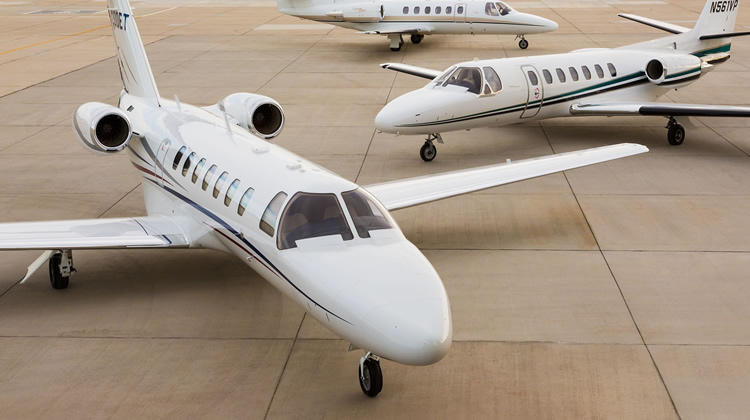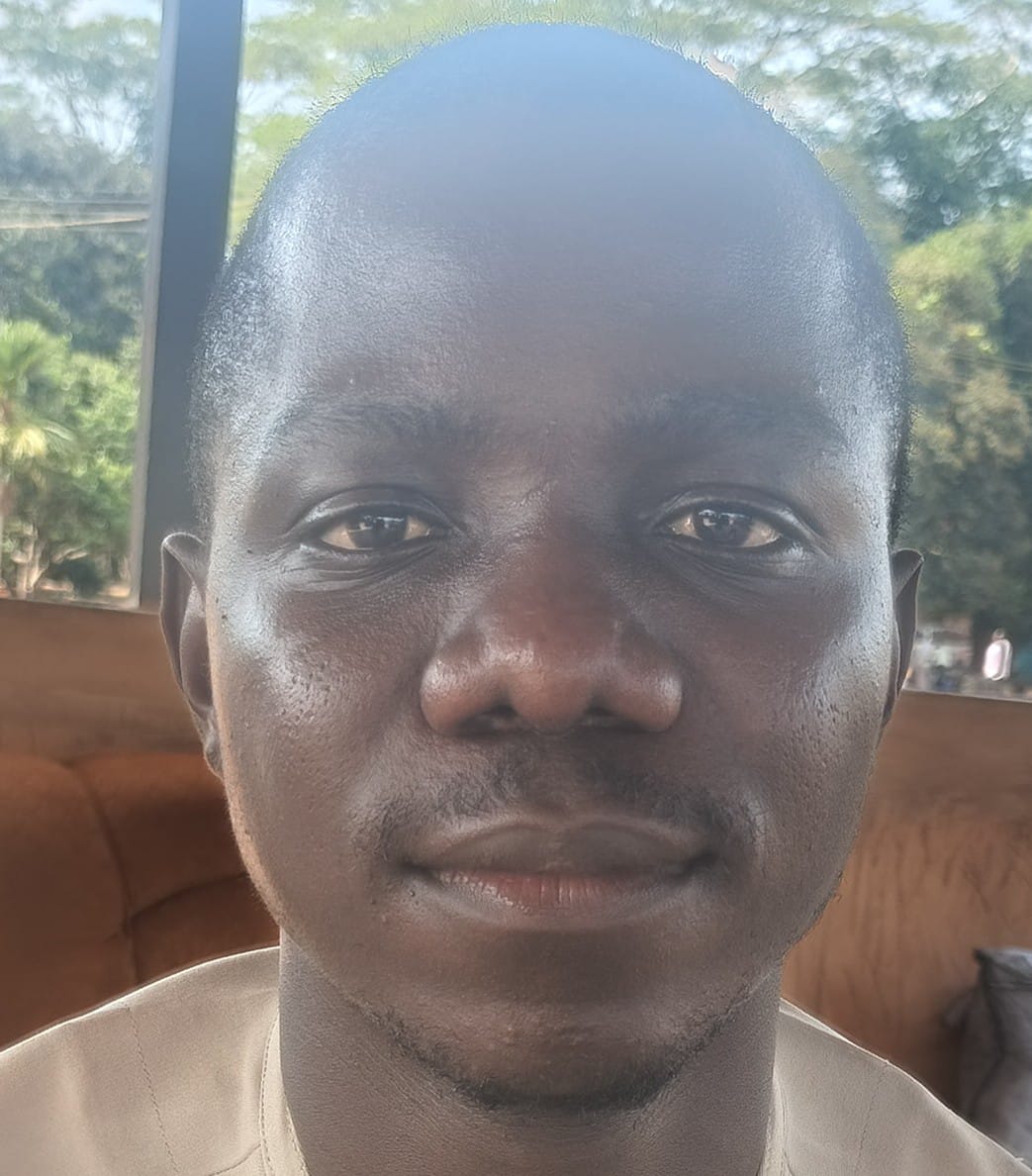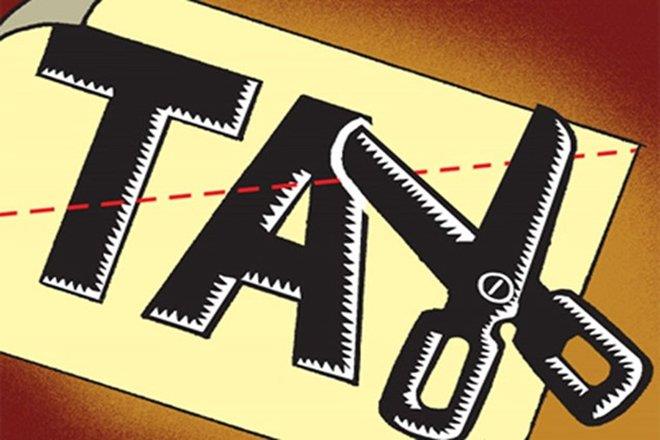To recover import duties from some private jet owners in the country, the Federal Government, through the Nigeria Customs Service, has grounded about 60 private jets across major airports in Nigeria, The PUNCH reports.
It was also gathered that private jet hangars in Lagos and Abuja airports were reportedly sealed up. However, owners of the aircraft, including bank chiefs and multinational oil companies among other individuals, have begun to lobby the Presidency to secure the release of their jets.
Some of the grounded luxury aircraft include Bombardier BD-700 Global 6000, BD-700 Global 6500, BD-700 Global 7500, among others. Officials of the NCS and those in the aviation sector confirmed this in separate interviews on Wednesday.
There are reports that duties are not being paid on the majority of private jets currently in the country, with the Nigeria Customs Service seeking to recover unpaid import duties running into several billions of naira.
The Customs had asked private jet owners to proceed on a verification exercise with the government. The exercise was to determine defaulters in the payment of import duty.
Recall that on October 14, 2024, The PUNCH reported that the Federal Government, through the Nigeria Customs Service, had planned to ground over 60 private jets owned by very important persons in the country over unpaid import duty beginning from that day.
This was not implemented as the NCS later that same day announced the extension of the verification exercise for private jet owners by one month, from October 14, 2024, to November 14, 2024.
READ ALSO: FG Begins Demolition Of Structures Under Lagos Bridge
At the expiration of the deadline on November 14, nothing was said about the development. The PUNCH questioned the agency’s silence on the matter, but the spokesperson of the service, Abdullahi Maiwada, hinted that varying court cases hindered the Customs from executing its vow at that time.
However, on Wednesday, it was gathered that the NCS had quietly commenced the grounding of both private and corporately-owned jets. The exercise started on Monday without any fresh notice, according to those affected.
The officials of the agency of the NCS sealed some aircraft at the Murtala Muhammed International Airport, Lagos, and the Nnamdi Azikiwe International Airport, Abuja. The drastic enforcement came barely seven months after The PUNCH reported Customs warnings against defaulters.
When contacted on Wednesday, the spokesperson for the service, Maiwada, confirmed the development, stressing that the service won’t rest until all that is due to the government is collected from the airlines.
He said, “Yes, enforcement has started. The aircraft are grounded for the non-payment of customs duty, and as soon as they come over to regularise their payment and give what is due to Nigerians, they will get it back.
“We issued a statement when we started the verification, and we extended the period and even ‘over extended the period’, now that we are acting, everyone already knows our reason. We just have to enforce, we have to collect revenue for Nigerians so that it will be used for Nigerians.”
Maiwada recalled a long period of appeals extended to the defaulters to validate their jets or pay the duty, but noted that this fell on deaf ears.
“Now that we have grounded them, they will have to comply. We are hopeful and we know that they will comply,” he stated.
READ ALSO: FG Probes Night Examination In Unity School Asaba
Meanwhile, impeccable sources in customs familiar with the development told The PUNCH that some of the aircraft owners had started to make contacts even with the presidency for the release of their jets.
One of the top banks in Nigeria has already promised to pay next Tuesday, while another is negotiating with Customs in proxy. An energy company with three jets has also promised to pay in the coming week.
However, The PUNCH gathered that there were rumours that the Customs service was making moves to unseal the grounded aircraft while inviting the jet owners to a meeting in Abuja to discuss how the issue would be permanently resolved.
A document, dated June 4, 2025, said to have been signed by Deputy-Comptroller General, one C.K. Niagwan, on behalf of the Comptroller-General of Customs, noted that the “temporary unsealing” of the grounded aircraft received the approval of the Comptroller.
According to the document, the temporary unsealing of the aircraft was to allow the operators the chance to present all relevant documents regarding the affected aircraft and engage the service to discuss and agree on appropriate modalities for the settlement of outstanding duties and taxes.
The circular expressed that the unsealing was solely to facilitate compliance, adding that this did not constitute a waiver of any statutory obligations. Meanwhile, our correspondent learnt the unsealing was only for a few of the grounded jets.
Experts react
A former deputy director of engineering of the defunct national carrier, Nigerian Airways, Frank Oruye, called on both operators of private jets and the Nigeria Customs Service to adopt global best practices in their activities.
He appealed to customers to pay what was due to the government, and also called on Customs to be professional in their dealings.
He said, “For a conducive aviation sector to be created, it’s essential for stakeholders to fully understand what it takes. Everything should not end in ‘gra-gra and rofo-rofo’. Investors and importers should be ready to foot all local taxes and customs duties.”
READ ALSO: FG Places N5m Bounty On Fleeing Inmates Of Ilesa Prison
While recalling the disagreement that ensued between the defunct Nigeria Airways and Customs during the airline’s lifetime, Oruye stated that “NCS should endeavour to follow global best practices in fixing duties.”
He added, “I recall that we had difficulties with Customs when I was at Nigeria Airways in the 70s through the 90s. There’s a class of aircraft components known as Rotables. They are high-cost items ranging from electrical and hydraulic Pumps and motors to avionics components. In the course of their operating lives, they need to be removed from the aircraft for scheduled maintenance or repairs at approved foreign bases. Let’s imagine a generator whose price is $50,000.
“After operating in Nigeria for two years, it was sent abroad for repairs, which cost $1,500. Upon its return to Nigeria, NCS would be targeting duties based on $50,000, ignoring that it had been duty-paid at its first entry to Nigeria. Advanced nations don’t burden their airlines with such debilitating levies.”
Also, retired Group Captain John Ojikutu stated that most of the grounded aircraft were foreign-based, a development he described as a security threat to the country.
Ojikutu blamed both Customs and the Nigeria Civil Aviation Authority for allowing an “unclear number of aircraft” to fly in the country.
While recalling how he grounded aircraft belonging to the late Kashimawo Abiola, for running afoul of regulatory laws, he appealed to the NCAA to live up to expectations.
“All these things happening now didn’t happen before. In the first place, why are foreign-registered aircraft flying in the country? Who permitted them? When I was at the airport, I seized Abiola’s aircraft twice! Why are people behaving this way nowadays? In Demuren’s days, such wouldn’t have happened. I had the authority to monitor foreign airlines. They can’t fly without security clearance, and aside from the customs airport, which is the point of entry, they can’t fly to more than one airport.
“All these things happening are risky, not even now that we don’t know the people in charge of the insurgency. To now fly foreign aircraft without clearance is a threat to national security. Both customs and the NCAA should be blamed for allowing them to fly such aircraft in the country. Let the NCAA check its regulations. There should be a regulation for such an act.”




































